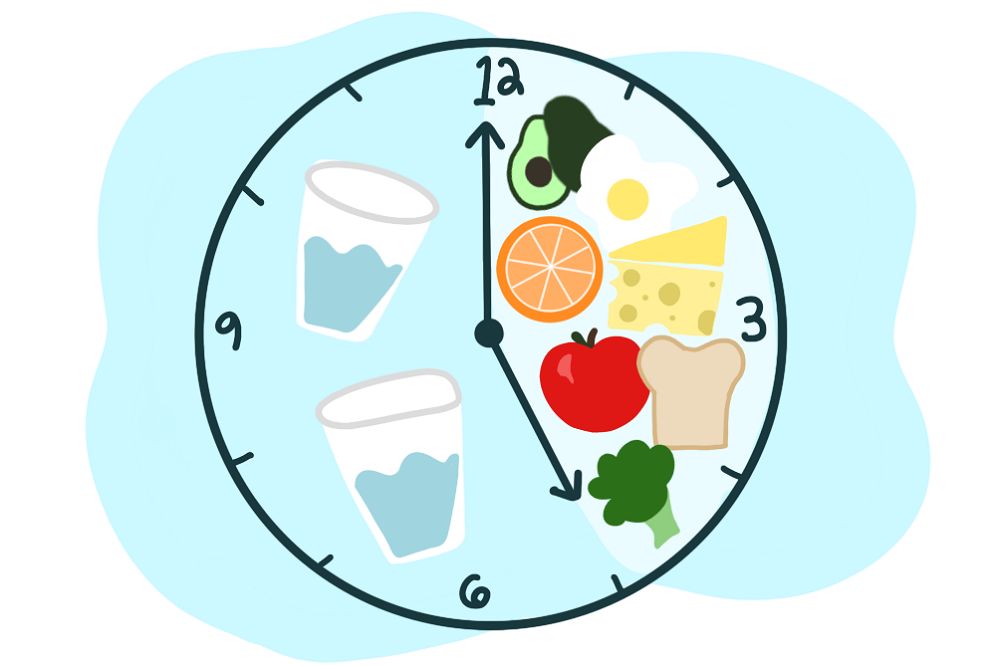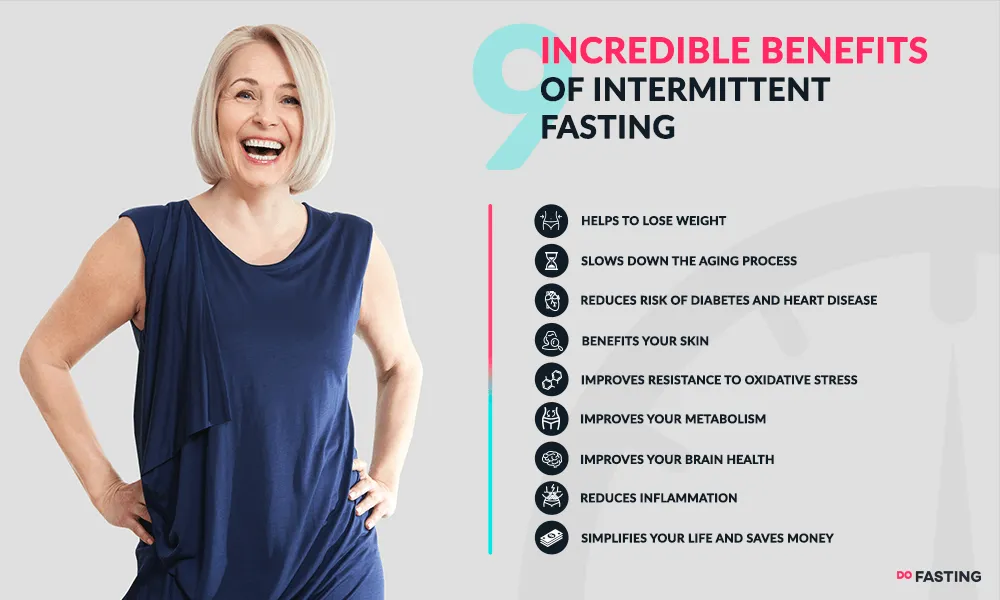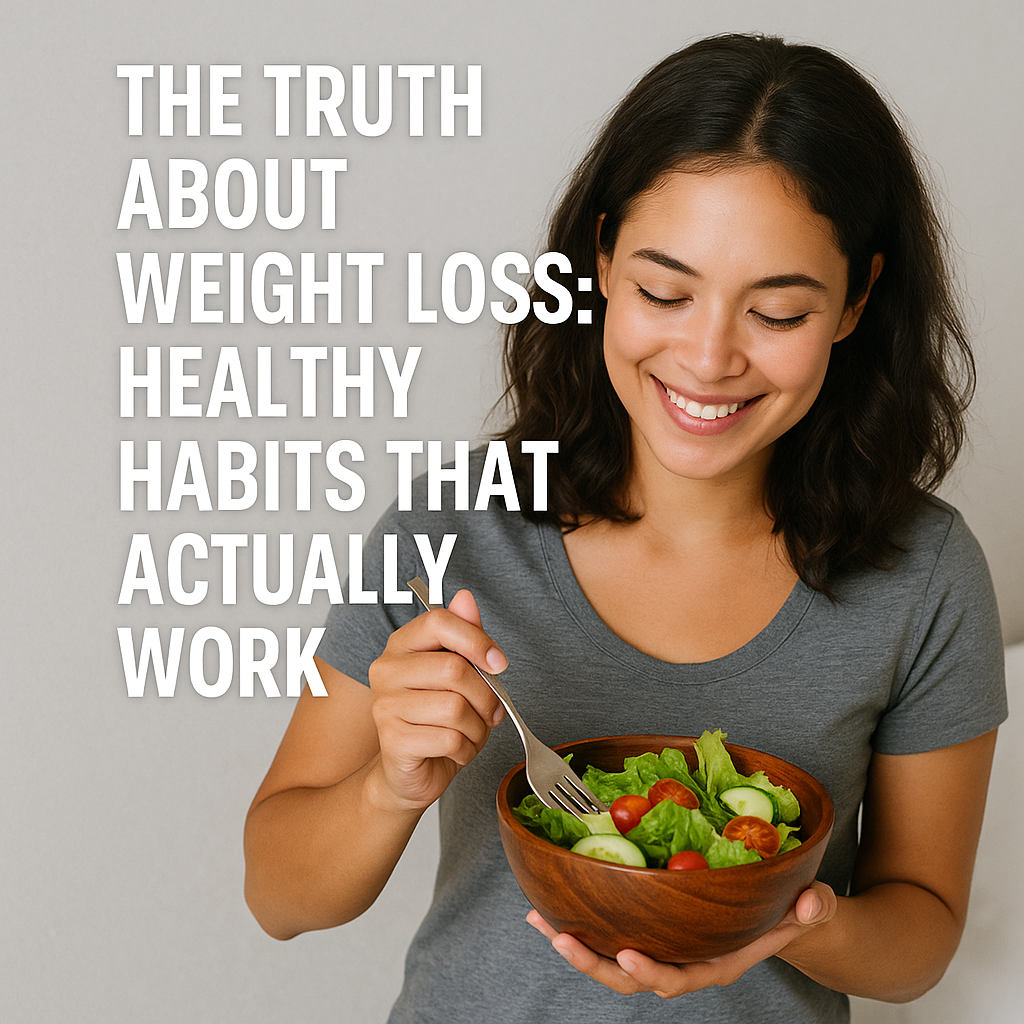Table of Contents
Introduction: What is Intermittent Fasting and Why Should Women Consider It?
In recent years, intermittent fasting (IF) has become one of the most popular weight loss strategies, particularly among women. While traditional diets focus primarily on the types of food consumed, intermittent fasting shifts the emphasis to when you eat. This lifestyle approach cycles between periods of fasting and eating, allowing your body to trigger multiple beneficial metabolic processes that can lead to significant weight loss, improved energy levels, and better overall health.
Unlike restrictive calorie-based diets, intermittent fasting offers flexibility and can be customized to suit a variety of schedules and lifestyles. Many women turn to intermittent fasting to achieve their wellness goals, whether it’s losing weight, improving heart health, or boosting energy levels. However, before diving into this practice, it’s essential to understand how intermittent fasting works, its benefits, and the considerations unique to women.
In this beginner’s guide, we’ll dive into the science behind intermittent fasting, explore the specific benefits it can offer women, discuss its risks, and provide tips on how to start fasting successfully. Whether you’re looking to shed those last few pounds or improve your long-term health, intermittent fasting might be just the lifestyle change you need.
Moreover, weight loss isn’t just about dieting—it’s about adopting habits that support your long-term wellness goals. If you’re aiming to make sustainable changes, you might want to check out Best Weight Loss Diets for Women for more information on how to build a solid foundation for lasting results.
What is Intermittent Fasting?

Intermittent fasting isn’t a conventional diet in the traditional sense; it’s an eating pattern that alternates between periods of eating and fasting. During fasting periods, the body goes without food for extended durations, allowing it to undergo natural metabolic processes that promote fat burning and other health benefits.
Common Intermittent Fasting Methods
There are several methods of intermittent fasting, and it’s important to choose the one that works best for your lifestyle. Here are some of the most popular approaches:
- 16/8 Method: This method involves fasting for 16 hours and eating within an 8-hour window (e.g., 12 pm to 8 pm). It’s one of the most popular and beginner-friendly methods.
- 5:2 Method: You eat normally for five days of the week and restrict your calorie intake (usually around 500-600 calories) on two non-consecutive days.
- Eat-Stop-Eat: Fasting for 24 hours once or twice a week. During the fast, no food is consumed, but water and other non-caloric beverages are allowed.
- Alternate-Day Fasting: In this method, you fast every other day, and eat normally on the non-fasting days.
The Science Behind Intermittent Fasting and Weight Loss

Intermittent fasting triggers several physiological processes that help the body burn fat, improve metabolism, and support overall health. Let’s break down the science behind how intermittent fasting works:
1. Insulin Sensitivity and Fat Burning
When you eat, your body releases insulin to help process the sugars and carbohydrates from food. Insulin facilitates the movement of glucose into the cells, where it can be used for energy. However, during fasting periods, insulin levels drop significantly, signaling the body to burn stored fat for energy. Lower insulin levels during fasting not only encourage fat burning but also help regulate blood sugar levels, a critical factor for weight loss, especially for women who are more prone to insulin resistance.
2. Increased Human Growth Hormone (HGH) Production
Fasting also increases the production of human growth hormone (HGH). This hormone plays a vital role in fat breakdown, muscle growth, and overall body composition. Higher levels of HGH can help preserve lean muscle mass while promoting fat loss, making intermittent fasting particularly beneficial for women looking to maintain muscle tone and burn fat simultaneously.
3. Cellular Repair and Autophagy
Another benefit of intermittent fasting is its ability to trigger autophagy—a process in which the body cleans out damaged cells and regenerates new ones. This form of “cellular housecleaning” has been linked to improved metabolism and better fat-burning efficiency. Autophagy also reduces oxidative stress and inflammation in the body, promoting overall health and longevity.
4. Reduced Calorie Intake
While intermittent fasting doesn’t dictate what foods you can eat, it often results in a natural reduction in calorie intake. Since eating is restricted to specific windows, there is less time to consume food throughout the day, often leading to fewer overall calories consumed. For women aiming to lose weight, this reduction in caloric intake can create a calorie deficit, which is essential for fat loss.
Benefits of Intermittent Fasting for Women

Intermittent fasting offers numerous benefits, many of which are particularly impactful for women. Here’s a closer look at some of the primary benefits:
1. Effective Weight Loss
For women looking to lose weight, intermittent fasting can be highly effective. By restricting the eating window and reducing calorie intake, IF promotes fat loss while maintaining lean muscle mass. Research shows that intermittent fasting is just as effective, if not more so, than traditional calorie-restricted diets in achieving weight loss. Many women find IF to be a sustainable and flexible way to lose weight without the constraints of rigid food restrictions.
2. Improved Insulin Sensitivity
As women age, especially during perimenopause and menopause, the risk of insulin resistance increases. Insulin resistance can lead to weight gain, particularly around the abdominal area, and is a precursor to Type 2 diabetes. Intermittent fasting has been shown to improve insulin sensitivity, helping to regulate blood sugar levels and reduce the risk of diabetes.
3. Boosts Metabolism
Intermittent fasting can help increase the metabolic rate in the short term. Studies suggest that fasting periods increase fat oxidation (fat burning) and promote fat loss. This metabolic boost helps women burn more calories even at rest, making IF a powerful tool for accelerating fat loss and improving overall metabolic health.
4. Enhanced Mental Clarity and Focus
Many women who practice intermittent fasting report increased mental clarity and focus during fasting periods. This is likely because the body uses fat as fuel instead of glucose, which leads to a more stable energy supply for the brain. The absence of blood sugar fluctuations can help improve focus, concentration, and cognitive function.
5. Heart Health Benefits
Intermittent fasting has been linked to improved heart health, which is particularly important for women. Research has shown that IF can lower cholesterol levels, reduce blood pressure, and decrease inflammation markers, all of which contribute to a reduced risk of heart disease. These benefits are especially important for women after menopause when the risk of cardiovascular disease increases.
6. Reduced Risk of Chronic Diseases
In addition to improving heart health, intermittent fasting has been shown to lower the risk of other chronic conditions such as Alzheimer’s, certain types of cancer, and stroke. Studies suggest that IF reduces inflammation, oxidative stress, and improves cellular repair processes, all of which play a role in preventing chronic diseases.
Risks and Considerations for Women Starting Intermittent Fasting
While intermittent fasting offers numerous benefits, there are some risks and considerations that women should keep in mind before starting.
1. Hormonal Changes
Intermittent fasting can affect a woman’s hormonal balance. Women with irregular menstrual cycles or those who are pregnant or breastfeeding should consult with a healthcare provider before starting IF, as fasting can influence hormone levels, potentially affecting fertility or menstrual cycles.
2. Potential for Overeating
One of the risks of intermittent fasting is that it may encourage overeating during eating windows. With a limited time to eat, women might overconsume calories or turn to unhealthy food choices. It’s essential to focus on nutrient-dense, whole foods during eating periods to ensure that the weight loss benefits of fasting are not undermined.
3. Energy Levels
Some women may experience initial fatigue, dizziness, or irritability when they begin intermittent fasting, especially if they have low blood sugar or are new to fasting. It’s crucial to listen to your body and ease into fasting gradually. If the fatigue becomes severe or persists, fasting may not be suitable.
4. Not Suitable for Everyone
Intermittent fasting may not be appropriate for women with certain health conditions, such as eating disorders or thyroid issues. Women who are pregnant or breastfeeding should also avoid IF unless directed by a healthcare provider. It’s important to consider individual health needs and consult with a healthcare professional before starting any fasting regimen.
How to Start Intermittent Fasting: A Beginner’s Guide for Women
If you’re new to intermittent fasting, it’s essential to start slowly and gradually ease into the process. Here’s a step-by-step guide on how to get started:
1. Choose the Right Method
Begin with a fasting method that fits your lifestyle. The 16/8 method is one of the most beginner-friendly options, allowing you to fast for 16 hours and eat within an 8-hour window. Start with a 12-hour fasting period and gradually increase it as your body adjusts.
2. Stay Hydrated
During fasting periods, drinking water is essential to stay hydrated. You can also drink herbal teas or black coffee, as they do not break your fast.
3. Eat Nutrient-Dense Meals
During eating windows, focus on consuming whole, nutrient-dense foods such as lean proteins, vegetables, fruits, whole grains, and healthy fats. Avoid processed foods and sugary snacks, as they can hinder your weight loss progress.
4. Be Consistent
Consistency is key when it comes to intermittent fasting. Stick to your chosen fasting schedule for at least a few weeks to allow your body to adjust and experience the benefits of fasting.
5. Listen to Your Body
Pay attention to how your body feels throughout the process. If you feel lightheaded or weak, consider adjusting your fasting schedule. It’s essential to listen to your body’s signals and adjust as needed.
External Resources
For more information on intermittent fasting and its health effects, refer to these authoritative websites:
Conclusion: Start Your Intermittent Fasting Journey Today
Intermittent fasting offers numerous health benefits for women, ranging from weight loss to improved metabolism, heart health, and mental clarity. This approach allows you to focus on when you eat, rather than what you eat, which can make it a more sustainable option for many women compared to restrictive diets. However, it’s important to remember that intermittent fasting is not a one-size-fits-all solution. You should approach it gradually, choose a method that fits your lifestyle, and ensure you listen to your body throughout the process.
By staying consistent, staying hydrated, and consuming nutrient-dense foods during eating windows, you can make intermittent fasting work for you. Whether you want to lose weight, boost your metabolism, or improve your overall health, intermittent fasting can help you achieve your goals. As with any significant lifestyle change, it’s crucial to consult with a healthcare provider before starting, especially if you have underlying health conditions.
Are you ready to give intermittent fasting a try? Start with a method that suits your daily routine and begin your journey toward better health and wellness today. Remember, sustainable changes and consistency are key to long-term success.
Frequently Asked Questions (FAQs)
1. What is intermittent fasting?
Intermittent fasting (IF) is an eating pattern that alternates between periods of fasting and eating. It’s not about restricting the types of food you eat, but rather when you eat. Common methods include the 16/8 method, 5:2 method, and Eat-Stop-Eat.
2. Can intermittent fasting help with weight loss?
Yes, intermittent fasting is effective for weight loss. It helps reduce calorie intake, boosts fat-burning, and improves metabolism. Many studies have shown that intermittent fasting can lead to significant weight loss, often as effectively as traditional calorie-restricted diets.
3. Is intermittent fasting safe for women?
For most women, intermittent fasting is safe, but it may not be suitable for everyone. Women who are pregnant, breastfeeding, or have specific health conditions such as eating disorders or thyroid problems should consult with a healthcare provider before starting intermittent fasting.
4. How long does it take to see results with intermittent fasting?
The time it takes to see results can vary depending on the individual, but many women begin to notice weight loss and improved energy levels within the first few weeks. Long-term benefits, such as improved metabolism and heart health, may take a few months.
5. Will intermittent fasting affect my hormones?
Intermittent fasting can impact hormone levels, especially in women. It’s important to monitor your body’s response, particularly if you have hormonal imbalances, irregular cycles, or are trying to conceive. Consulting a healthcare provider is recommended if you have concerns.
6. What should I eat during my eating window?
During eating windows, focus on nutrient-dense, whole foods such as lean proteins, vegetables, fruits, whole grains, and healthy fats. Avoid processed foods and excessive sugar, as they can interfere with the benefits of fasting.
7. Can I exercise while practicing intermittent fasting?
Yes, you can exercise while intermittent fasting. Many people find they have more energy during their fasting periods, especially after a few weeks of adaptation. However, if you’re just starting, ease into workouts and avoid intense exercise during fasting periods until your body adjusts.
8. Can intermittent fasting improve mental clarity?
Yes, many women report improved focus and mental clarity during fasting periods. This is likely due to the body using fat for energy instead of glucose, which provides a more stable energy source for the brain. The absence of blood sugar fluctuations can help maintain mental sharpness.


